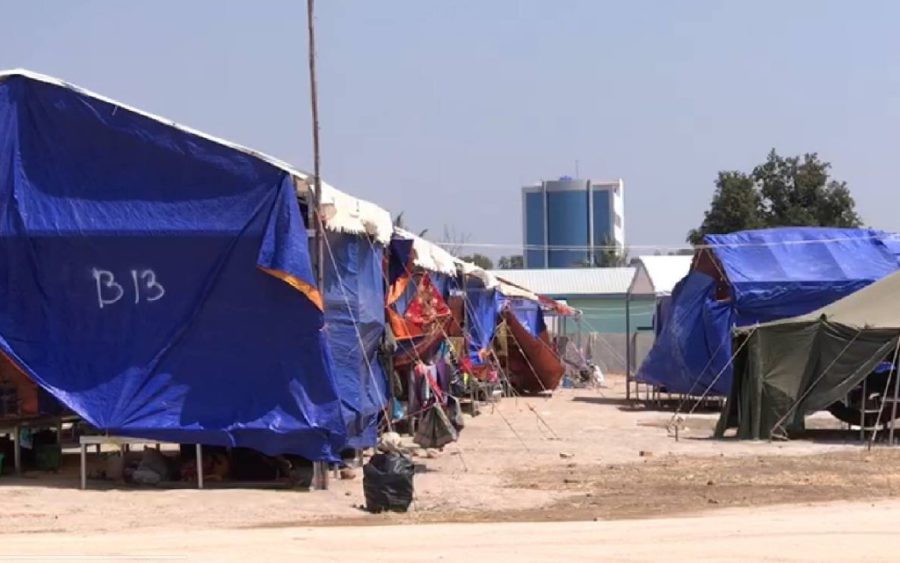Amid mass migrant worker arrivals and overcrowding quarantine centers at the Thai and Vietnamese borders, a senior National Police official said authorities over the past two weeks had arrested more than 100 brokers who facilitated illegal border crossings.
National Police spokesman Chhay Kim Khoeun said on Tuesday that most of those arrested were returning from Thailand, while there were fewer people crossing the Vietnam border.
“We have arrested more than 100 brokers, I think since February 13,” he said.
Last month, Prime Minister Hun Sen ordered security forces deployed along the Thai and Vietnamese borders to prevent civilians from migrating to work abroad, as well as stop Cambodian migrants from returning without having a health check and 14-day quarantine as advised by the Health Ministry.
Nearly 100 migrant workers tested positive after returning across the Thai border from late December and through early February, amid an outbreak in Thailand linked to a seafood market.
Border province governors said hundreds of workers were still returning from Thailand daily.
But no new Covid-19 infections have not been reported among migrant workers since February 21, the day the community outbreak in Phnom Penh was announced.
Between 300 and 700 people were returning each day from Thailand through Banteay Meanchey province, said deputy governor Ly Sary, still higher than the typical 50 to 300 returnees the province had seen since Covid-19. The provincial government had set up 15 quarantine centers, which were hosting nearly 5,500 returned workers in quarantine as of Wednesday, he said. Just over 18,000 people had returned to their hometowns after completing quarantine between last March and Wednesday, he added.
Dy Rado, deputy governor of Oddar Meanchey province, said the number of workers returning daily had risen to 300 to 500 per day in the last two weeks, up from a lull of 100 to 200 returnees just before.
As the number of returnees rose, authorities prepared more than 100 tents for quarantine at border junctions in the last two to three weeks, Rado said, adding that samples were taken from all returnees and sent to Phnom Penh for testing.
“As long as they enter [the country], [doctors] will take a sample,” he said. “We have a stand-by doctor at the border, and they know when the migrant workers enter and will send them to quarantine.”
Soeum Bunrith, Battambang province deputy governor, said that a few days ago, there were 300 to 400 workers returning per day, but that number had dropped to 77 as of Tuesday.
He attributed the drop in numbers to more stringent checks by Thai authorities, including cracking down on brokers bringing Cambodian workers back across the border.
“We have been asking for cooperation for a long time, but the cooperation had not been good yet,” he said. “Just a few days ago, there was a lot of cooperation from the Thai authorities.”
The province has 11 quarantine centers, and has set up 47 tents for quarantining workers, requesting another 40 tents from the National Police’s engineering unit.
According to the deputy governor, more than 10,000 workers have returned via Battambang province since last year, and there are currently 3,403 people in quarantine.
As of March 3, Cambodia has found 878 total cases of Covid-19, with 396 active cases as the country weathers the “February 20” community outbreak.













